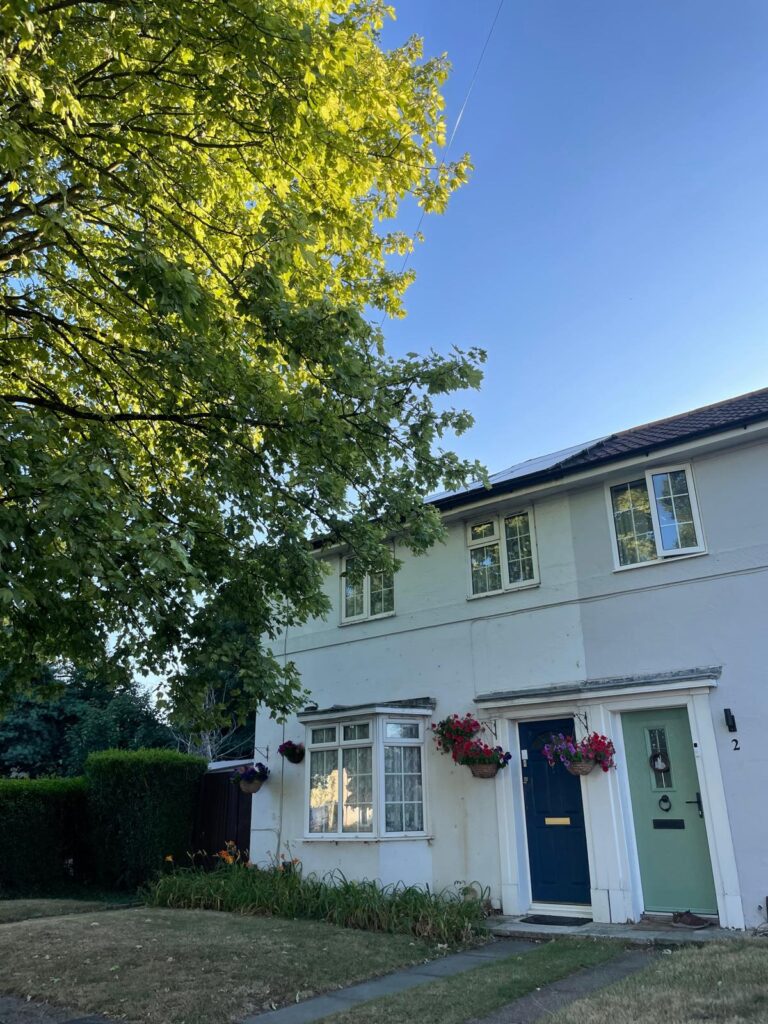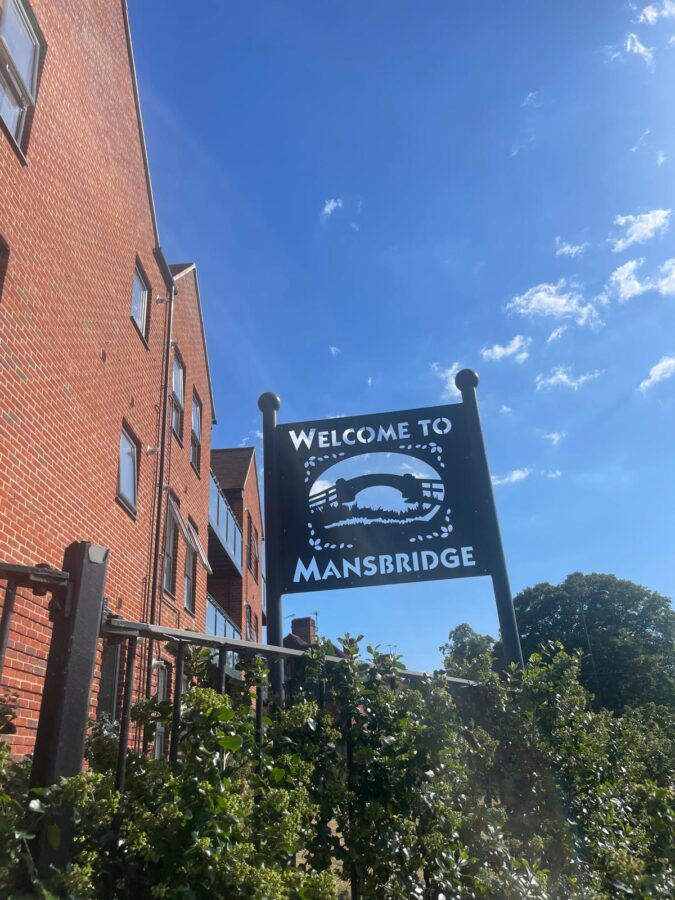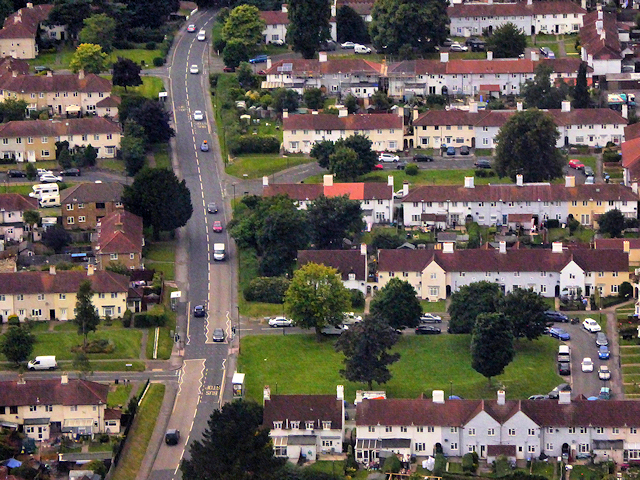Anoushka Alexander-Rose is a postdoctoral researcher at the University of Southampton. Anoushka interviewed Cara Headon, a Community Development Officer for Abri Housing Association, as part of the Mansbridge Heritage Project.
AA-R: Can you tell me about how you first came to work at Abri as a housing officer?
CH: In May 2014 I was working in customer services. I wasn’t looking for a job in housing at all. I fell into it as most people do. Before that, weirdly, I was answering switchboards for the Houses of Parliament from Southampton on twelve-hour night shifts and three week rolling contracts so I never had weekends. I just wanted a normal Monday to Friday and I really enjoyed customer service because I’m a helper, I really like helping people. I could see what the housing officers were doing which I got really interested in – going out and visiting people, dealing with antisocial behaviour, tenancy issues, that kind of thing. It always sounded interesting and I felt that I could do a really good job, so I set my sights on it. During those 18 months of being in customer services, Abri supported and paid for my social housing qualification. I did the Level 3 Chartered Institute of Housing where I learned all aspects from finance to law and legislation. I was seconded into the Housing Team for six months, then I moved onto the Income Team before accepting a Permanent Housing Officer role. Abri placed me in Mansbridge in 2016 – so I’ve been working there in one role or another for nearly ten years. Wow.
AA-R: Why did you then decide to become a Community Development Officer?
CH: I shared the Mansbridge estate with another housing officer because there are over a thousand homes and lots of antisocial behaviour. In that role, you’re helping people but not in the way they’d like, it’s always like you’re going out to see someone to tell them to stop doing something, or if there’s something wrong, if you have to take them to court, or write legal notices if they’ve breached their tenancy agreement. It was hard and intense, and I thought I needed a change. So, when I saw a job advertised for a Community Development Officer – I had already worked with them and saw the great things they were doing – I thought that sounded like fun and a positive way to help people.
AA-R: How have you shaped the role and what kind of legacy did you inherit?
CH: When I applied I didn’t know it was for Mansbridge. I don’t think the managers even knew and they could have sent me anywhere all over Hampshire, or further, but I was lucky. When they thought about it, it made sense for them because I already had all the connections with partners and organisations, and I had already worked closely with the police, so they decided to keep me in Mansbridge. But it was a hard change because you have a completely different kind of responsibility. It was November 2020 and we were coming out of lockdown. It was a struggle to get people to understand that I couldn’t help them in the same way, and it needed to go through the right channels. There was someone I had worked with before – he was a hoarder and we had to clean his flat – and once I had found my feet in this role he said: ‘Oh, you’re actually a really nice person’. Now there’s a dedicated Community Safety Team which deals with all the anti-social behaviour, so that’s made a bit of a change.
Now I spend a lot of time trying to keep other colleagues up to date with projects so when they’re talking to people and helping they can say: “Do you know we’ve got some allotments or a singing group or a craft group?” Abri invests so much more time and money than we are required to so: we’re constantly trying to prove impact and measure everything to justify the work, to show that what we do is needed, makes a difference, and benefits people. So sometimes they want us to do long projects, six-weeks, six-months, even a year.
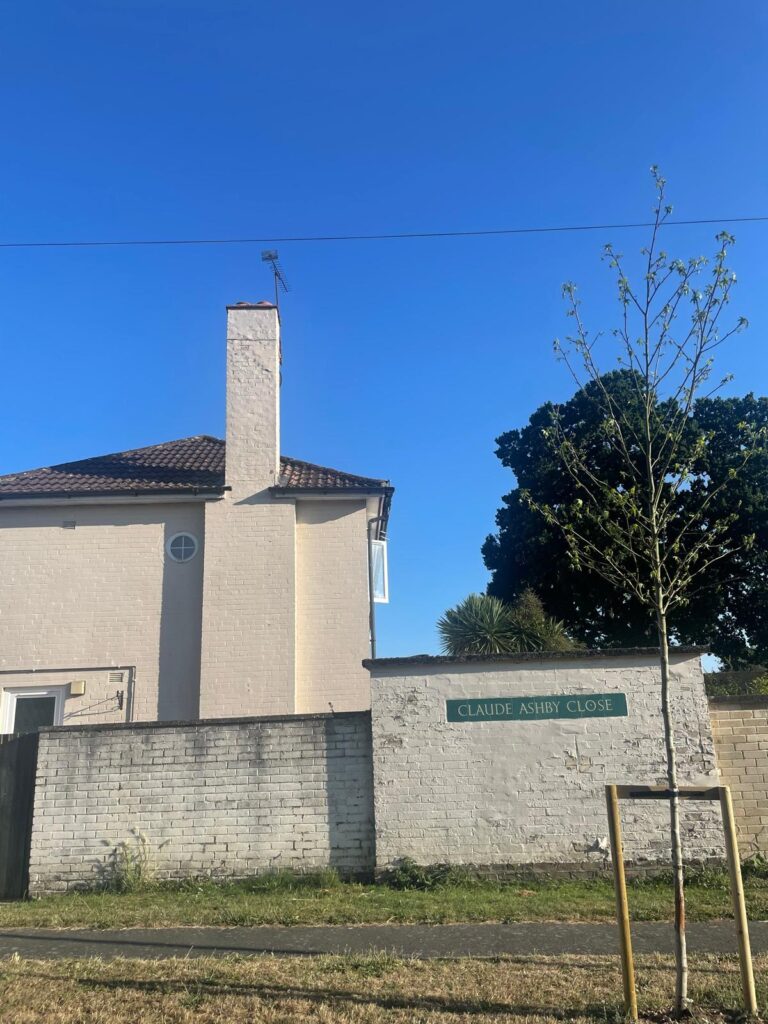
AA-R: How do you choose the activities and what impact can you see with those who participate?
CH: When only one or two people come to activities I do feel dejected, but they give so much and we just talk a lot. About eight people are in our music group but they come regularly, and it’s been running since April 2022. I can see the difference in them all, the conversations they have between each other. Someone who used to never leave their flat comes regularly, went to karaoke, has started going to the gym. So, it’s about feeding that back as well. It’s all about making connections.
I don’t just come up with the ideas of things to do – the projects and activities. It’s always because someone has said they want to learn more about something, do some training, or just something they enjoy. A lot of it is from passing conversation, you overhear what people are saying. One of the volunteers at the café loves singing karaoke but there was nowhere to do it locally. He said we should set up a community choir, we started the singing group – and he comes along. When we did karaoke he sang eight times!
AA-R: How did the walking tours and creative collage workshops come about, specifically?
CH: When it comes to those activities, the whole idea is that we’ve got such a mixture of people – some who have lived here a long time and do know a lot about why the estate was built, how and who did it. But lots of people don’t know anything so it’s a combination of trying to connect people to where they live, but ultimately everything I do is just about bringing people together in different ways.
AA-R: Why do you think it’s important that people know about where they live?
CH: I’m the same – I take the same route where I live every day. I’ve been surprised by people who say: “I’ve never walked down there, or I didn’t know there were allotments”. And we’ve got all these historical links – the road names, and nature too. So, it’s just about trying to make people feel a bit more connected to their neighbours too. They’ve all got the same thing in common.
AA-R: Do you feel like the people who have done the walks feel more positively about Mansbridge afterwards?
CH: It’s funny, we had our creative session yesterday with seven people but only one of them was renting from us, the rest were homeowners. They were all talking about how they chose to move here because they liked it, because it was cheap, because of the green spaces, even because they knew about Herbert Collins. They’re more interested in the history too. But social housing tenants don’t have as much choice, they need to move for whatever reason. There are 1,052 houses, I think, with just under 600 still rented through Abri. We’ve got two over-60 schemes, and a handful of shared ownerships, and the rest are privately owned and then some are then privately rented out.
We did some door knocking the other day and spoke to this one lady who said: “We used to live down that road and rented, and moved and bought a house at the other end of the same road.” In those days if you had more children you just waited until someone moved out and then you could have a bigger place. You could only move to the estate if you already had family here, or if you were a builder who helped build the estate, you got offered a place to live. So, there was a waiting list but you had to have a connection to someone. When your child turned into an adult, they could ask for a flat.
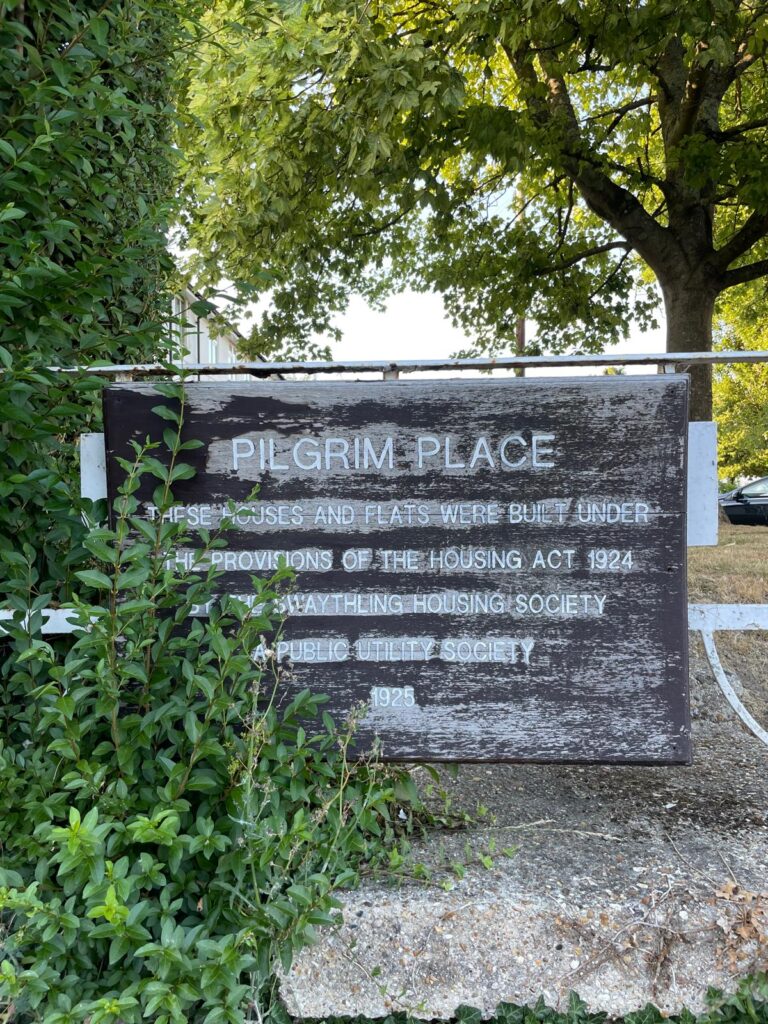
AA-R: If we’re talking about people who chose to move to Mansbridge, it makes sense that they have pride. But for those renting from Abri, do you feel like your activities give them a sense of pride in place?
CH: The research we did before said that although a lot of people feel proud of where they live they don’t feel like a community. It’s not like the olden days where everyone chats to everyone else. But people do recognise each other, most of the kids go to the primary school, and gossip goes around – that’s a form of community.
AA-R: Do you think there’s an idealised vision of what community is?
CH: Everyone has those rose-tinted glasses. They say: “It used to be better when I was younger, I used to talk to everyone.” But it’s not just for this area. Someone said they feel it’s to do with the garden fences – originally, they were picket so you couldn’t go out without seeing your neighbour and chatting, but now there are six-foot fences up, like a physical barrier, and people’s relationships changed. Mansbridge has a reputation, people think it’s a terrible place to live, until they come and say: “Isn’t it so nice, so quiet?” It’s not worse than anywhere else – you get exactly the same issues.
AA-R: When I asked you about pride, you started talking about community. Why do you think that is?
CH: The one thing people talk about is the green spaces. They fight very hard for them as well. We’ve got long-running parking issues because the estate was designed before there were cars. It’s very divisive – people want more parking but they don’t want it on the green spaces, and they really hate it when people park on the grass. So even though they might not be saying “I’m proud of where I live,” there’s a sense of ownership, they defend it. That’s why they get so annoyed when they see litter. One of the councillors came on one of the litter picks and she said it’s not really that bad but it’s all about people’s perceptions. People take extra care which implies pride.
What sparked all this off was a consultation we did in October 2023 when we were looking at doing estate improvements as part of the 100-year celebrations, so we were asking people how they felt. One of the questions – “would you recommend Mansbridge as a place to live to a family member, friend or colleague?” – scored fairly low out of ten. But then I’ve got people saying, I want my adult children and grandkids to move back to the state, asking if I can do anything about it. They literally can’t get them to move back because there’s no social housing available and people aren’t moving out. So, you’ve got this survey, but what they say to you is different. I think also they saw the question as being about where they actually live – some of the houses are old, they get cold – but they weren’t thinking outside their four walls. I don’t think people can separate that from the neighbourhood where they live.
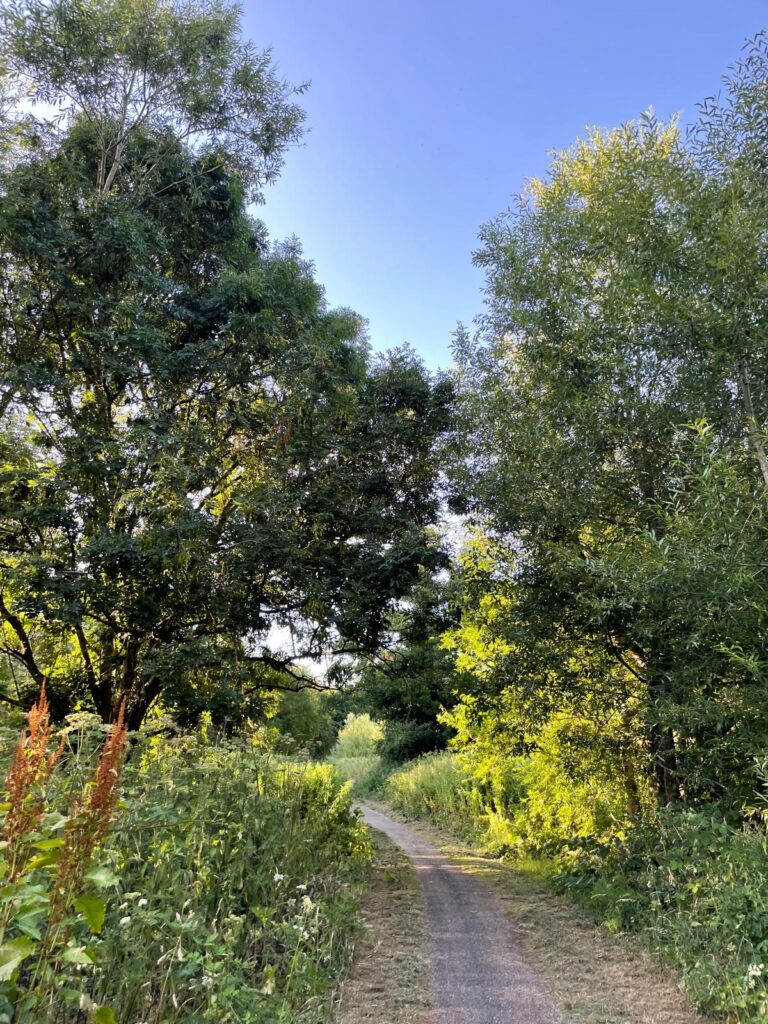
AA-R: When you’re running walking tours and creative workshops, is it clear to residents that they are participating in heritage?
It’s called a “Heritage Walking Tour” but I have to think more carefully about how I’m describing things. I try to make it broadly appealing, so for half-term I changed the wording to make it more family orientated, and I haven’t called the other activities “creative workshops” on the poster. Some of the terms we use professionally would be really off-putting. Next week for creative writing, I’ll just describe the activity that we’re actually going to do. Even “history” would put some people off, wouldn’t it?
The Mansbridge Memory sessions were the perfect example – it just ended up being people coming together to chat and look at photos. There were people that had come back to the estate for the first time in forty years. Or others who had no relationship with Mansbridge but wanted to learn about it, like if they drive through it a lot.
AA-R: Blue-sky thinking, with unlimited budget, what would you love to do for Mansbridge?
CH: I’d like the community association to be more productive, for them to be in a better position. Southampton Forward are running some leadership training at the end of the year. I’d like them to set up a Neighbourhood Watch for residents to take things more into their own hands. That’s our whole ethos, we want to empower people to do it for themselves, leave the community in a stronger place. We’ve got ten allotments, a community orchard and a biodiversity site – I’d love more people to go and visit that. It’s tucked away and I put in a funding application to make it accessible, at the moment if you’re in a wheelchair you can’t get in.
These ideas are all based on what people have said to me – there’s a council play park, I’d like an outdoor gym there, that would be crazy. Ideally there would be a bigger social space but there’s nowhere left to build one here. But out the back of the pub [The Fleming Arms] it’s a Grade 2 listed building, an old coach house. It would be perfect – but it’s just storage, it’s in a pretty bad state and not safe to use. But there’s government funding for community aid. If money and time was no object, that would be great, to have a bigger community space. To expand the café, the shop, a social supermarket.
AA-R: How attached do you feel to Mansbridge?
CH: I think I do feel part of Mansbridge now. I love the atmosphere in the café, seeing people make friends, so many come in by themselves for one reason or another and they always end up talking – no one really sits there by themselves. You’ve got old people chatting to younger people, like coin collecting together. If we haven’t seen someone for a few days, someone will ask if they’re alright. It’s such a lovely little space but it’s not open all the time. We’ve got a manager, a part-time assistant, and it’s run by volunteers – we’re very lucky to have long term volunteers, but they’re mostly retired. Mostly the customers come on specific days to see a specific volunteer, which is lovely.
